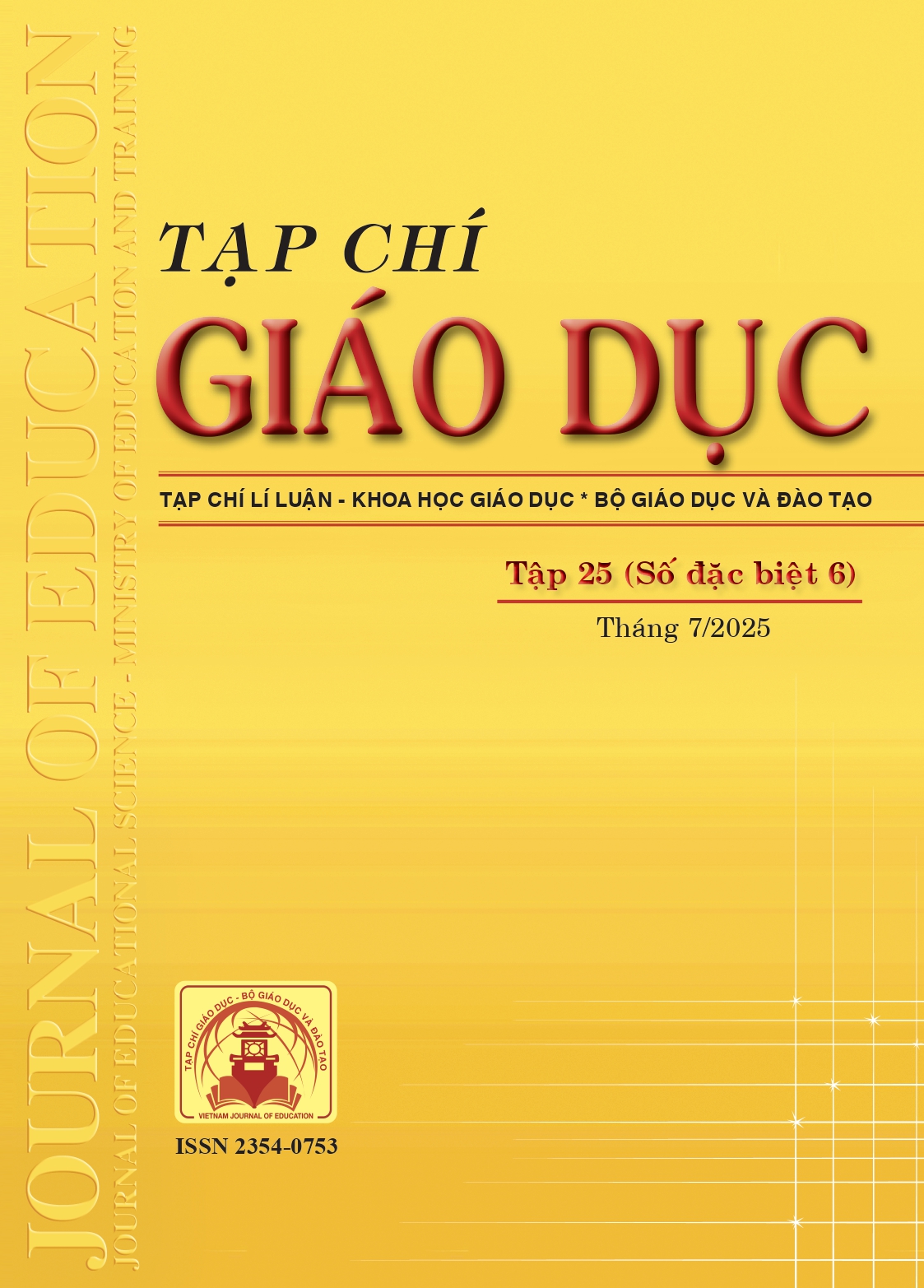Thực trạng ứng dụng công nghệ thông tin trong dạy học môn Tiếng Anh ở các trường trung học phổ thông khu vực miền núi phía Bắc Việt Nam trong bối cảnh chuyển đổi số
Tóm tắt
This study analyzes the application of information technology (IT) in teaching English at high schools in Vietnam’s northern mountainous regions during digital transformation. Based on the SAMR model and surveys in four provinces (Phú Thọ, Yên Bái, Lào Cai, Hà Giang), the findings show that English teachers primarily use IT at substitution and augmentation levels (levels 1 and 2), excelling in lesson preparation and digital resource utilization but limited in information security, advanced technologies like virtual reality, artificial intelligence, and international connections. Lesson preparation is thorough, but few teachers create E-learning content. IT is widely used in Warm-up, Listening, and Project lessons, less in Speaking and Writing. In assessment, many teachers rely on traditional methods, with minimal AI use. Information storage mainly involves personal computers and cloud platforms, but learning management systems are underutilized. The study recommends enhancing IT training, improving infrastructure, standardizing evaluation, and fostering a community of teacher practice.
Tài liệu tham khảo
Ban Chấp hành Trung ương (2024). Nghị quyết số 57-NQ/TW ngày 22/12/2024 của Bộ Chính trị về đột phá phát triển khoa học, công nghệ, đổi mới sáng tạo và chuyển đổi số quốc gia.
Bộ GD-ĐT (2024). Công văn số 4324/BGDĐT-CNTT ngày 14/8/2024 về việc hướng dẫn thực hiện nhiệm vụ ứng dụng công nghệ thông tin, chuyển đổi số, lưu trữ giáo dục năm học 2024-2025.
Hà Ánh Phượng (2024). Application of information technology in teaching English at high schools in the context of digital transformation. In Proceedings of the International Conference on English for Occupational Purposes 2024: EOP Education - Empowering Learners for a Globalized Workforce (pp. 329-306), Hanoi National University Press.
Nguyễn Quang Thuận (2023). Quản lí ứng dụng công nghệ thông tin trong dạy học môn Công dân ở trường trung học phổ thông. Luận án tiến sĩ Khoa học giáo dục, Trường Đại học Sư phạm Hà Nội.
Pelgrum, W. J., & Law, N. (2003). ICT in education around the world: Trends, problems and prospects. UNESCO.
Phạm Thị Lệ Hằng (2016). Ứng dụng công nghệ thông tin trong dạy học ở các trường trung học cơ sở thành phố Hà Nội. Tạp chí Giáo dục, số đặc biệt tháng 12, 223-225.
Puentedura, R. (2006). Transformation, Technology and Education: A Model for Technology and Transformation. http://hippasus.com/resources/tte/puentedura_tte.pdf
Susanty, L., Hartati, Z., Sholihin, R., Syahid, A., & Liriwati, F. Y. (2021). Why English teaching truth on digital trends as an effort for effective learning and evaluation: Opportunities and challenges: Analysis of teaching English. Linguistics and Culture Review, 5(S1), 303-316. https://doi.org/10.21744/lingcure.v5nS1.1340
Thủ tướng Chính phủ (2020). Quyết định số 749/QĐ-TTg ngày 03/6/2020 về phê duyệt chương trình chuyển đổi số quốc gia đến năm 2025, định hướng đến năm 2030.
Trần Minh Hùng (2014). Quản lí ứng dụng công nghệ thông tin trong dạy học ở trường trung học phổ thông. NXB Đại học Huế.
UNESCO (2018). Khung năng lực kĩ thuật số dành cho giáo viên. https://unesdoc.unesco.org/ark:/48223/pf0000265721
Wenger, E. (1998). Communities of practice: Learning, meaning, and identity. Cambridge University Press.
Đã Xuất bản
Cách trích dẫn
Số
Chuyên mục
Giấy phép

Tác phẩm này được cấp phép theo Ghi nhận tác giả của Creative Commons Giấy phép quốc tế 4.0 .












